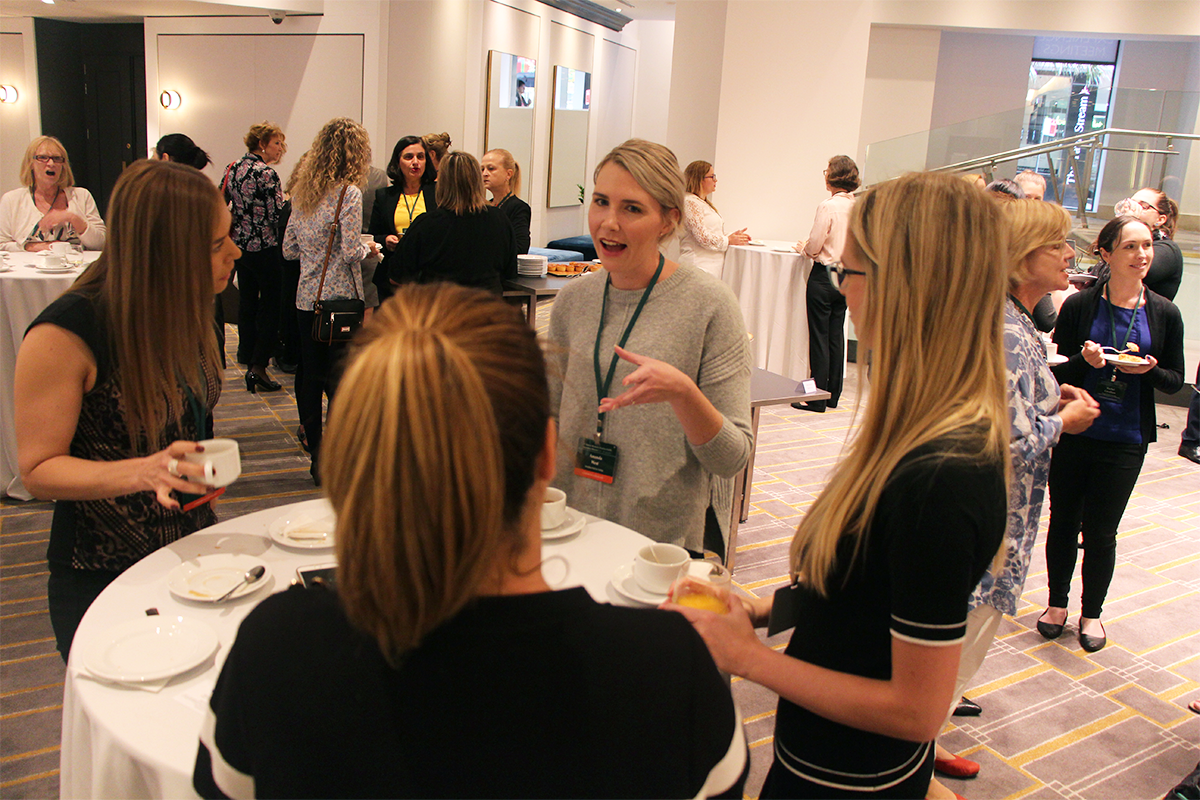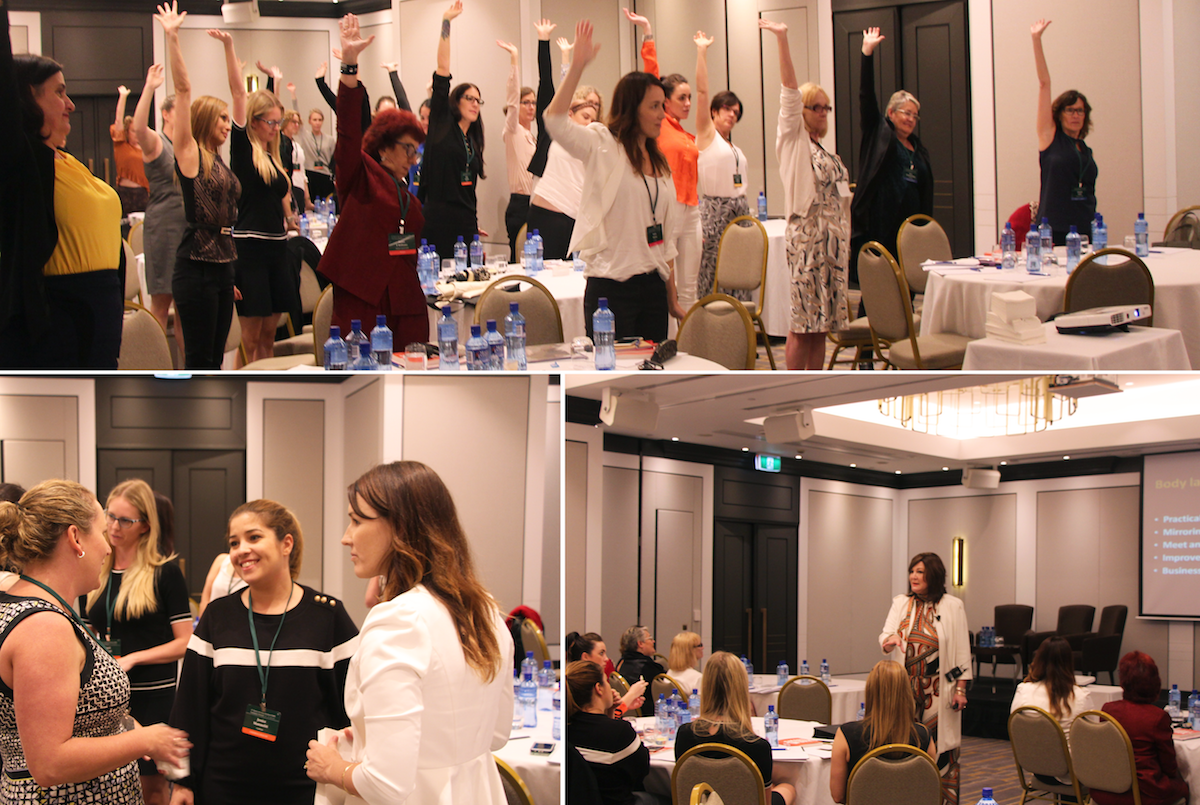Gone are the days when a personal assistant was only there to answer the phone, fetch coffee and schedule appointments; when an executive assistant was just there to perform basic office admin.
“The idea that assistants are just here to make coffee and answer phones really is an outdated image and clearly a view point of those that have no concept of what we do and the value that we add,” says Edwina Graham, EA to the Digital & Financial Services Director, Coles.
In reality, the successful EA or PA plays an integral role in the organisation, a fact that was evident at the Annual Australia National EA/PA Conference, presented by Clariden Global, which took place over the 10th to the 21st April in Melbourne and Sydney.
Now in its fifth year, the conference covered topics like project management, harnessing technology, effective communication, achieving the right work-life balance, pursuing growth opportunities and salary negotiation, demonstrating that the role of EA is not just a job – it’s a career in itself.
Personal & professional development
The conference was kicked off by Chairperson and EA extraordinaire Dimitra Zographos, who counts chairing and speaking at conferences and events over the last 10 years as one of the key highlights of her career.
“These events not only provide an opportunity to hear and learn from professional speakers and experienced EAs and PAs, and gain knowledge that will contribute to our personal and professional development, but also help us grow our network,” says Dimitra, who is the EA to Simon Glendenning, Senior VP at Western Union.
And Helen Williams, PA to the GM at NAB, wholeheartedly agrees. “It’s a great opportunity to speak with people you might not necessarily come across in your day to day routine.”

“The Melbourne conference was amazing,” adds Narrelle Matthey-Aickin, EA to the Group GM Brand & Marketing, ANZ. “I love attending these events and find them incredibly beneficial as there is always something new to learn. And the camaraderie and spirit is very evident.”
In fact, after connecting at the conference, Helen and Narrelle are planning to catch up for a coffee to debrief. “Being in the same industry we have similar “war stories”, and our integrity enables us to have great conversations without crossing any conflict of interest borders,” explains Narrelle.
Both highly recommend getting involved in conferences and mentoring. Helen shared her knowledge on project management with the other attendees. “No longer is a PA or EA role just about diaries and travel. Because of our multi-skilling capabilities, we’ll be asked to take on organising and managing projects or events, so it’s important to know what’s involved and how to go about it,” she says. “As any good project manager will tell you, prior preparation prevents poor performance!”
After 40 years working as a PA or “herding cats” as she puts it, Helen has plenty of knowledge to share, so she’s also a mentor to other assistants at NAB. “I think it’s important for EAs & PAs to have mentors and support networks mainly because of the ever-evolving nature of our job,” says Helen. “I can help with setting personal goals or if there is something troubling them, they can come to me and I’ll listen. It’s about trust and respect. I find it very rewarding.”

Narrelle, also a presenter, adds, “If the opportunity arises, i.e. a conference company requesting speakers, put your hand up as a development opportunity. Passion always shows through in a presentation and if you manage to resonate with or inspire just one delegate, then that is a priceless measure of success.”
Dealing with difficulty
Narrelle has her share of war stories, but says they have proven to be invaluable learning experiences. “I have reflected on these past experiences to ensure it never happens again,” she explains. “In past job interviews I have been totally transparent on the sort of executive I will or won’t work for, i.e. no micro managers, so that I am setting both myself and my future executive up for success.”
Having worked as an EA for the past 15 years, and previously as a business development manager, Narrelle knows what works and what doesn’t when it comes to forming business partnerships. She passed on her knowledge and advice during the conference, speaking on the topics of forming successful business partnerships and dealing with difficult people and situations.
“I think many EAs face these difficulties at some stage of their career. How it is handled could possibly become a career-defining moment. You have to know where to draw the line,” says Narrelle. “We all have choices and life is too short not to enjoy your career, for which only you can take full accountability and responsibility.”

Edwina, who has worked as an executive and personal assistant to a number of executives over the past ten years, also knows a thing or two about the challenges that EAs face at work. She started her blog, Who’s the Real Boss, about a year ago after realising that “there was a distinct lack of blogs and articles online that actually dared to speak of what some of the real challenges and issues are that assistants face collectively as a profession”.
There is nothing ‘just’ about what an assistant does
One of the biggest challenges that Edwina has had to deal with in her career is overcoming negative stereotypes, an experience shared by many of her readers. “Negative stereotypes and myths around the role – we’re uneducated, we don’t aspire to a proper career, or that the role is just for females – all add up and paint a picture of assistants that is so far from who we are and what we do,” she says.
“It’s difficult to come out of years of university only to announce to friends and family that you are going to be ‘just an assistant’, and especially when measuring yourself against your peers who all were very quickly progressing in corporate management positions. But what I did not realise back then, was that there was nothing ‘just’ about what an assistant does. In fact, the more experience I obtained as an assistant the quicker I learnt that we were in fact in a league of our own. And so there was no need for me to feel inferior around my peers, as I too was in a management position – I was a manager of the executives and CEOs that I was supporting, which was something not to be ashamed of, but something to be super proud of.”
As a passionate advocate for changing the perception of her profession, Edwina was delighted to get involved with the EA/PA Conference this year. “I feel very privileged that the conference organisers reached out to me to participate,” she says. “I’ve attended enough EA/PA conferences in my time to understand what it is that assistants need to hear and what sorts of topics need to be brought to the forefront, especially in order spearhead change and transition in our profession.”
She shares, “EAs are there to make executives more productive which in turn makes businesses more profitable. It is incorrect to shelve the role as being a non-revenue producing position, especially when assistants create more efficiencies for business leaders and stop them from getting involved in the nitty gritty, which is both time and money wasting.
“We are facilitators, leaders, and managers in our own right, and the value that we add to the executives we support is something that shouldn’t be scoffed at.”
To register your interest for the 2018 Annual Australia EA/PA Conference, email [email protected]





